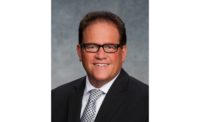How Are Venues Around the Nation Reacting to the Manchester Bombing?

While no amount of security can guarantee against the possibility of an attack, major terrorist attacks around the world always serve as a clarion call, drawing people’s attention to security measures in their own towns, and many are increasingly beginning to turn their focus from indoors to outdoors and the perimeter surrounding the venues.
On Monday, May 22, in the British city of Manchester, an explosion happened near an entrance of Manchester Arena shortly after the ending of an Ariana Grande concert, killing 22 and injuring more than 50. The incident prompted venues including concert halls and stadiums not just in England and Europe, but across the U.S. and Canada as well to evaluate their security.
An article in the Los Angeles Times quoted Michael Downing, executive vice president of security for Prevent Advisors, which specializes in arena and stadium security, who said that although many American and European venues already use metal detectors, bomb detection technology and armies of security guards and cameras inside the facilities, the Manchester incident points to need to be more vigilant outside those security zones in places such as transportation centers, walkways and parking lots.
According to the article, some of the attacks in recent years, such as those in Berlin, Paris and Nice, France, have prompted Southern California law enforcement officials to review security measure at train stations and venues such as Staples Center and Dodger Stadium.
One answer the article cites is “vapor wake” dogs that, unlike bomb-sniffing dogs are trained to smell particles in the air and are able to detect explosives worn on a person even in crowds. The Los Angeles Police Department has two of these dogs, the article reported.
An example of a venue stepping up its perimeter security is Chicago’s Wrigley Field, where Chicago has announced it will accept $1 million from the Cubs to install 30 new cameras around the ballpark and within several blocks of Wrigley Field. According to a report by local Chicago television station Fox 32, Cubs officials said giving the money to the city for security cameras was in the works before the attack in Manchester, but it was the day after the bombing that the Chicago officials announced they would accept the money and install the cameras.
The report quoted Chicago OEMC spokeswoman Melissa Stratton saying the new security cameras will be installed on city-owned light poles around the perimeter of the stadium.
The report says the area is one of the most densely populated in the city, and the cameras will enhance safety and security surrounding the event while tying into the city’s camera system at the Office of Emergency Management.
SDM spoke with Mark McCormack, national sales manager, NSI, Axis Communications Inc., who explained Axis won the job for the Chicago Housing Authority several years ago, which he said really kick started the relationship Axis has with the city. Axis now provides video surveillance on Navy Pier, in Soldier Field, the United Center, and Guaranteed Rate Field. "And now we're doing the deployment for the cameras at Wrigley Field," McCormack explained.
McCormack continued, "They’re taking what was generically a nice solid video solution to a sports arena, and now they’re pushing that perimeter further and further out."
He explained that while video can be a deterrent, it is important to have properly trained personnel and security guards as well. "Video surveillance is not going to prevent an attack, but it will provide enough forensic evidence to be able to go back, much like the Boston Marathon, and find these perpetrators," he said.
Axis is part of the NCS4 organization which, McCormack explained, has several conferences a year that bring in Major League Baseball, the NFL, the NHL, the NCAA, Department of Homeland Security, the FBI — and then they talk about the challenges that are faced around sports venues.
"I can tell you from being part of the NCS4 organization that most venues have methods and procedures, and they'll have mock active shooter exercises and those sorts of things, so I think they do a very good job of staying prepared for these types of things," McCormack said. "Even last year, Wrigley Field did a mock bomb attack; they shut down the street; the Office of Emergency Management was involved, the police department was involved. So you’re starting to see all of these agencies work together and making sure that they’re on the same page when it comes to these types of events."
The Cubs organizations also requested the city shut down two streets outside the stadium, Clark and Addison, while games are in progress to prevent vehicles being used as weapons on the streets that are only several feet from the outside of the stadium, but the city declined, saying doing so would essentially shut down the neighborhood on game days, adversely affecting businesses and residents who rely on these arterial streets.
While the city is stepping up security, officials say there is no immediate threat.
Mansfield, Mass., police reported that attendees of the new concert season at Xfinity Center should expect heightened security and that they would strictly enforce bag checks and arrest underage drinkers, according to an article in The Boston Globe.
Hours before the Tuesday concert, Mansfield police posted on Facebook, “The world we live in. If you see something, say something. We’ve got a whole bunch of people very well trained, many of whom are wearing brightly-colored shirts and would happily speak to you about something or someone you find suspicious.”
Boston Governor Charlie Baker and Police Commissioner William B. Evans said there is no immediate threat to Boston, but that police will increase their patrols around concert venues and at the Boston Calling Music Festival, set for Memorial Day weekend at Harvard Stadium, according to the article.
Evans said in the article that Lansdowne Street near Fenway Park is closed; this is done as part of a perimeter security plan designed to stop someone from using a vehicle as a weapon.
Dallas Fort Worth television station CBC 11 reported that the attack caused a beef up of security in concert venues in North Texas, mentioning that several Grand Prairie police officers were circling and patrolling outside the Verizon Theatre for the John Legend show.
In the report, terrorism expert and former police officer Clint McNear explained that venues or “soft targets” are continuing to be consistently targeted.
An article in The Denver Post explained that Colorado promotors bolstered their venues with front-and-center security measures following the 2015 shooting at Bataclan music club in Paris. However, they say there are a number of security measures in place that patrons will never see in order to avoid causing alarm or “tipping their hand.”
The article then offers a run-down of many of the security measures attendees can expect at Denver-area venues that seat 7,000 people or more, including Mile High Stadium, Pepsi Center and FirstBank Center.
On Tuesday, Houston Police Chief Art Acevado said attendees of Wednesday’s U2 concert at NRG Stadium in Houston should expect to see beefed-up security measures as a result of the Manchester bombing, according to an article in the Houston Chronicle. Acevado explained in the article that officials are reevaluating their security plans to make sure they are not missing anything.
Toronto Star reported major venues in the city will be stepping up security as well, such as Toronto’s Air Canada Centre where Canadian superstar the Weeknd is scheduled to play back-to-back shows this weekend. A spokesman said more security staff will be on the ground for this and other upcoming events.
In New York, NYPD Commissioner James O'Neill wrote on Twitter on Monday night that the department is closely monitoring events to “determine any possible implications” for the city.
According to a news report by local New York station NBC 4, additional heavy-weapons NYPD teams are being sent to Times Square, Penn Station, bridges, tunnels, mass transit systems and Yankee Stadium, where a game took place Monday evening.
Officials said New Yorkers will see vapor wake dogs along with highly trained counterterrorism officers and random bag checks at transit locations. NBC 4’s Marc Santia reported “a heavy NYPD presence” at Madison Square Garden and other venues across town.
In the report, former NYPD officer and security expert Sal Lifrieri encouraged people to prepare for worst-case scenario now, explaining that trying to put an emergency plan together during a crisis will doom you to failure. While this was in the context of families preparing emergency plans and meeting places before attending public venues, the same thinking can be seen in many of these major cities and venues evaluating their own security measures in light of the Manchester bombing.
According to an article in USA Today the NBA acknowledged being on higher alert as a result of the bombing, and NHL Deputy Commissioner Bill Daly said in a statement Tuesday, “Obviously, with yesterday’s events, arenas have been reminded to re-double their efforts and to maximize their vigilance.” The NHL Stanley Cup Finals begin May 29.
The article also reported that UEFA, the Union of European Football Associations, said it had already made thorough safety arrangements, with detailed checks being made at stadium entrances — resulting in potential delays entering the stadiums.
The UK newspaper News & Star reported that soccer fans can expect to see more armed police and will face longer checks at upcoming matches.
According to the article, Wembley Stadium officials announced enhanced security operation for all upcoming events.
The Tampa Bay Times reported that security at Tampa-area events will remain tight. Raymond James Stadium is slated to host the Sunset Music Festival this weekend, which drew 30,000 people last year. U2 will play there in June, and Paul McCartney performs at Amalie Arena in July.
In the article, St. Petersburg concert promoter Tony Rifugiato discussed what could be done to step up security at smaller venues such as Jannus Live and the State Theatre in downtown St. Petersburg and the Ritz Ybor in Tampa, concluding that while not much can be done, people can remain as diligent as possible.
Rifugiato echoed a sentiment plaguing everyone from Chicago down to Tampa: While security inside an arena is much easier to control by employing bag bans, metal detectors and cameras, security outside an arena, especially when large crowds are exiting, creates a confusion in which it is impossible to keep track of everyone.
This is one reason Chicago is installing cameras outside Wrigley Field. According to the Tampa Bay Times article, There are typically no security measures for searching people outside venues. But, the article continues, former Tampa Police Chief Jane Castor said officers have long been trained to be alert to what’s happening inside and outside venues with large crowds.
Castor continued, explaining that what happened in Manchester should not discourage people from attending concerts, ballgames and other events at these venues.
An article in The Washington Post points out that while Britain’s counterterrorism measures are considered to be some of the most sophisticated in the world, recent events, including this latest bombing, “underscored how attackers can adjust their deadly tactics to even the most sweeping security plans.”
However, Sir David Omand, a former director of Britain’s intelligence agency GCHQ who designed large parts of the country’s counterterrorism strategy, said in the article that the key is to lower the threat to as low as is "reasonably practical."
Omand points to an example of a security measure that has been effective in doing just that: setting up parking spaces further away from event venues to prevent vehicles from coming close to large crowds.
The article goes on to describe that increasingly, European event organizers and authorities prepare for the worst-case scenario. Britain’s Prime Minister Theresa May announced the number of soldiers across the country and on the nation’s streets would be increasing, further highlighting the shift of focus from solely screening people entering an arena to, increasingly, something done in conjunction with perimeter security, cities and local police.
Voice your opinion in SDM's LinkedIn group under the discussion question: How Can Authorities Better Protect Large Venues?
Looking for a reprint of this article?
From high-res PDFs to custom plaques, order your copy today!






